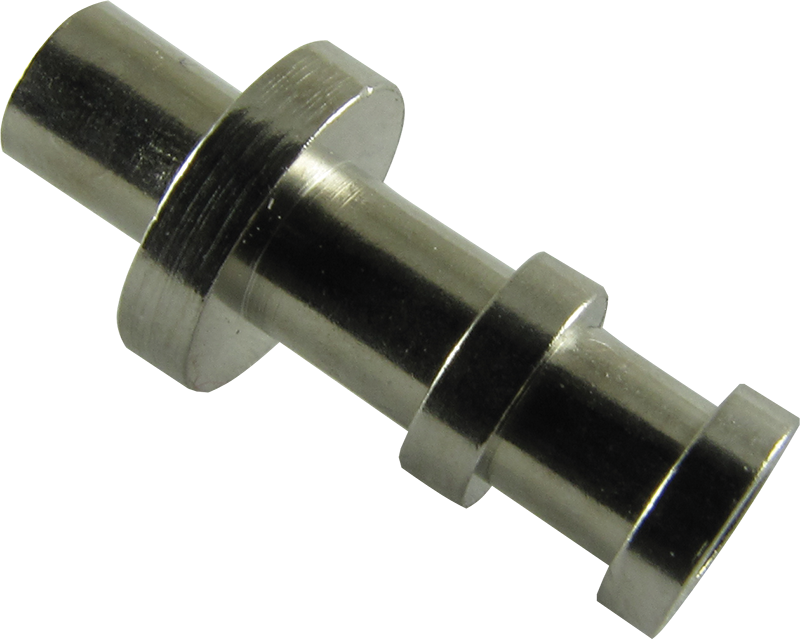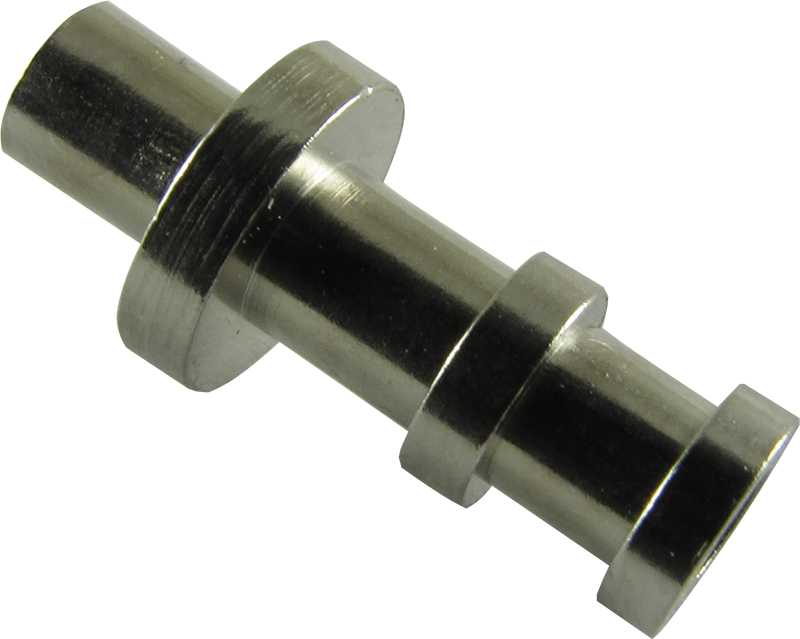Answer
Apr 16, 2025 - 10:35 AM
We sell over 10,000 of these per year and very rarely receive any complaints about issues with soldering them (we've had maybe 5 complaints in the last 5 years). Any turrets that have been returned as "defective" for customers who struggled to solder them received replacements that were no different (and possibly eventually leading to a full refund, if they really pushed for it). However, in every single case, upon receipt and inspection of the returned turrets, we couldn't find any issues and had no trouble soldering to them. We can only conclude that something to do with their particular soldering tools or technique was causing the issue. For this reason, we no longer offer refunds or replacements if people are having trouble soldering the turrets.
GENERAL SOLDERING TIPS
Use a temperature controlled iron that is well maintained, clean, and properly tinned. Pre-tin the leads and the turret. Or, at the very least, apply flux to the leads and the turret. Flux helps the solder to bond and flow in order to permeate the joint. Use a high quality thin lead (0.032"-0.050") eutectic solder. Sn63/Pb37 is best for ease of use, but it contains led. Led-free will require a higher consistent iron temperature, but is still workable with a good iron and proper technique. There's also the technique of soldering, which is difficult to write without showing (holding the iron in the correct place in the right orientation, holding the position for the correct amount of time, etc).
WHAT NOT TO DO
Most people buy an iron and solder from their local hardware store and call it a day. Most of the time, the soldering irons found at local hardware stores are not the right type for working with small electronics, and/or they won't hold the correct temperature consistently. Also, the type of solder they generally carry is far too thick and/or the wrong type entirely for working with small electronics (plumbing solder, for instance). In my experience, most people who struggle to solder parts in our industry (not just turrets, but pots, baseplates, plugs, and other parts) either don't have the right tools/supplies (temperature controlled iron, flux, good thin solder), or aren't following good practices (ensuring the parts are clean, using flux, pre-tinning, keeping their iron clean/tinned, etc). There are even some people out there who have been working on their own gear (or even doing repairs for others) for decades, and they've never had higher quality tools or "proper" soldering technique.
GENERAL SOLDERING TIPS
Use a temperature controlled iron that is well maintained, clean, and properly tinned. Pre-tin the leads and the turret. Or, at the very least, apply flux to the leads and the turret. Flux helps the solder to bond and flow in order to permeate the joint. Use a high quality thin lead (0.032"-0.050") eutectic solder. Sn63/Pb37 is best for ease of use, but it contains led. Led-free will require a higher consistent iron temperature, but is still workable with a good iron and proper technique. There's also the technique of soldering, which is difficult to write without showing (holding the iron in the correct place in the right orientation, holding the position for the correct amount of time, etc).
WHAT NOT TO DO
Most people buy an iron and solder from their local hardware store and call it a day. Most of the time, the soldering irons found at local hardware stores are not the right type for working with small electronics, and/or they won't hold the correct temperature consistently. Also, the type of solder they generally carry is far too thick and/or the wrong type entirely for working with small electronics (plumbing solder, for instance). In my experience, most people who struggle to solder parts in our industry (not just turrets, but pots, baseplates, plugs, and other parts) either don't have the right tools/supplies (temperature controlled iron, flux, good thin solder), or aren't following good practices (ensuring the parts are clean, using flux, pre-tinning, keeping their iron clean/tinned, etc). There are even some people out there who have been working on their own gear (or even doing repairs for others) for decades, and they've never had higher quality tools or "proper" soldering technique.



